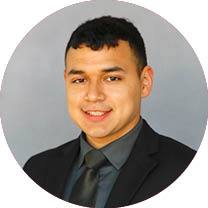“All of us agree. We need to reduce flooding in homes. It’s just about how do you do it,” Pearland Mayor Kevin Cole said at the Dec. 6 council meeting.
In June the council approved a resolution to put the proposed fee on the ballot.
On Dec. 6, council unanimously approved an amended resolution stating that the drainage utility charge would not be subject to an amendment more often than once every five years. The original measure had limited changes to once every three years.
The amended resolution also states that any proposed increase would not exceed the combined increases of the Consumer Price Index for the Houston-Galveston-Brazoria metropolitan area in the five-year period. According to the U.S. Bureau of Labor Statistics, the Consumer Price Index is a measure of the average change over time in the prices paid by urban consumers for a market basket of consumer goods and services.
Changes approved Dec. 6 also required 85% of the proceeds derived from the fee would go to capital projects and that voter approval would be needed for any proposed amendments to the 85% capital improvement designation rule; the CPI designation; or the five-year time frame.
Pearland City Council has until Feb. 18 to call for an election on this measure. The first council meeting in February will be on Feb. 14.
Council also has to decide whether any entities would be exempt from the fee, such as education and government buildings or religious organizations. As of Dec. 6, City Council has not approved any exemptions; however, Alvin ISD has requested to be exempt from the fee if it passes.
According to agenda documents, if the fee is put on the ballot and approved by voters in May, all residential properties would be charged $5 a month, and commercial properties would be charged $1.79 per 1,000 square feet of impervious coverage per month.
Together, the city anticipates the fee would generate $5.25 million that would be used to fund maintenance projects of less than $500,000 and provide debt service funds for large capital projects.
“I think it is fair to say we’re going to let voters decide,” Council Member Luke Orlando said.





